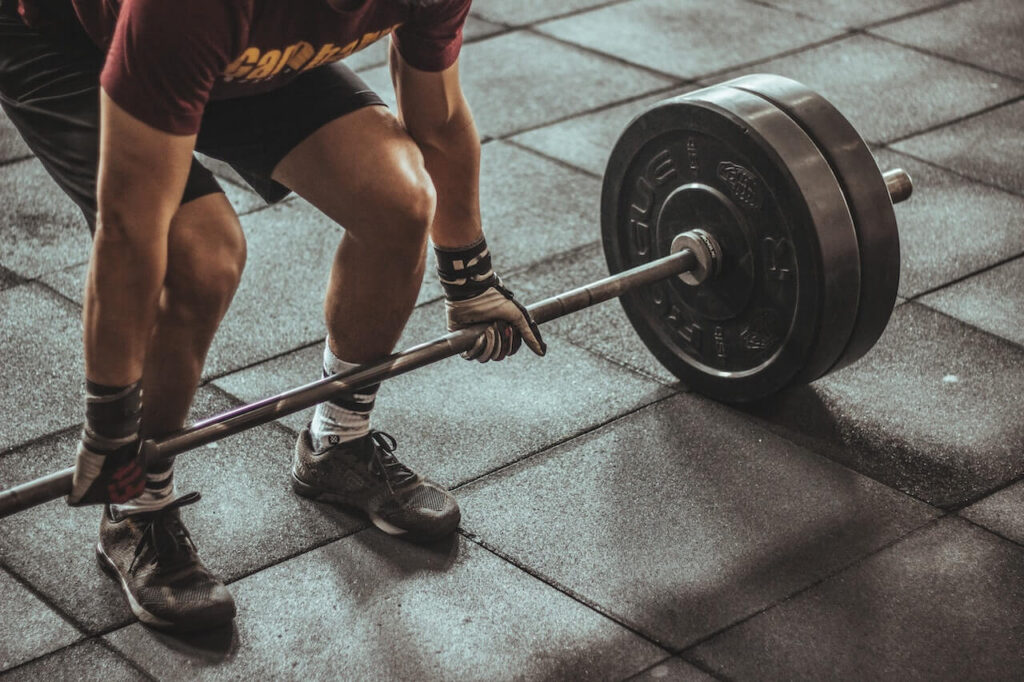The Physiological responses in the body to powerlifting training
Powerlifting, like any training, will cause changes to your body – both ones you can see and ones you cannot see.
Heavy lifting is very taxing on the body. One thing you will notice is (especially with heavy singles) this training will greatly increase inflammation to the body. This extent to which this fatigue is felt can be combated with good nutrition and proper recovery. It is important to note that even with these in place, it will still be there when pushing your strength limits.
You will also see major increases in bone density, as heavy weight training will cause a significant increase in bone mineral density, as well as strengthening your connective tissues.
You will find as you do more heavy lifts, you will no longer feel shakes or that you are kind of shutting down. This is because you are training your body to push past its limits. The Golgi tendon organ (GTO) is in all our muscles. It is set up to stop us form pushing to our muscles force production limits, which prevents you from tearing a muscle. With training, we can improve the capacity of our tendon organ with training under heavy loads close to failure. As you grow as a lifter this will improve.
Your energy systems will shift. Powerlifting is all fast twitch muscles. Fast twitch relies on the ATP PCR and glycolytic energy systems to perform. You will notice your power production will go up a lot and your endurance will go down, as you are training a power/speed and power energy system doing sets that last 5 seconds or less to 1 minute at most.
You will still need to be fairly fit to powerlift, as it is an athletic sport. Doing super long endurance workouts will hinder you and not help you. Being fit and healthy overall is important for athletes of all sports, but you still need to focus on what you need the most in your sport.
You will build very dense and thick muscles from heavier powerlifting (hyperplasia i.e., muscles splitting). This can only be done under heavy loads close to failure with 4-6 reps, a range many lifters train in, hence why they are much denser than a bodybuilder.
How does powerlifting change one’s appearance?
Everyone’s body adapts to the sport a bit differently
Many get much leaner and gain a lot of muscles, but do not get super lean or super fat/big. It depends a lot on how the lifter looks at nutrition and fueling for their training at the gym and will also their height and limb length.
Many taller lifters six foot and up in particular find that they have to gain a lot of mass to work with their leverages and lift big weights. With a greater range of motion to work through due to this, using mass to reduce it works very well and if its mostly muscles, it will make them a lot stronger.
In general, what we see when clients start powerlifting journeys is a substantial reduction in body fat mass and an increase in muscle. Weight will relatively stay the same or go up, but most are more than happy about this. When they see the physical changes along with their lifts shooting up, as the added muscle increases their power output greatly.
Can I be lean and strong?
This is a very common question with the rise of TikTok and powerlifting in that space. With all the super lean and strong lifters out there, that is now seen as the ultimate achievement – lean and muscular, but also able to complete huge lifts.
Is it possible, yes, however not the way you may think, and you may limit your true strength potential or have to take things that can impact your health to do it.
When you get too lean, your leverages change, and your recovery goes down. When it comes to powerlifting, it also means you may lift a lot less.
Many lifters that are super lean are naturally this way or they have spent a lot of time gaining muscle and strength at heavier body weights. Sometimes getting fifty pounds or more to build a huge base of strength then the cut down over a few seasons to their current body weight and fat percentage to excel. If you are meant to be super lean, your body will stay that way. As a lifter, if you are not, you will stunt your strength development by trying to stay shredded.
Is there an optimal body fat percentage for powerlifting?
This kind of builds on the earlier message about being lean and strong. There is an optimal body fat range, but then lifters come in all shapes and sizes. Generally speaking, for men it is 15-18% body fat and women 25-30% body fat. There are lifters that do well much lower and higher than this in terms of body fat, but this is what is proven to be optimal for lifters based on research.
This allows your body weight to balance out your center of mass and mixes the right amount of fat with a lot of muscle mass to push big lifts and allow you to eat enough to properly recover. This can be done without ruining your health at the expense of being strong.
Where did all the big fat powerlifters go?
When it comes to powerlifting, most people would think of a bunch of big, fat guys with tattoos. Yes, they are still around, but the sport has evolved, and many lifters now are much lighter and leaner lifting weights that no one else has at their body weights.
Powerlifters come in all shapes, sizes and ages and they all can do well as the only thing that matters is strength!

